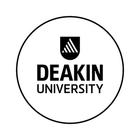Graduate Certificate of International and Community Development
Graduate Certificate of International and Community Development
Explore development programs that make a real difference to millions of people worldwide with the Graduate Certificate of International and Community Development. This course offers an introduction to global and local development challenges and opportunities, and provides a guaranteed pathway to our masters degree. Unique challenges and opportunities face us…
Categories
COURSE DESCRIPTION
Explore development programs that make a real difference to millions of people worldwide with the Graduate Certificate of International and Community Development. This course offers an introduction to global and local development challenges and opportunities, and provides a guaranteed pathway to our masters degree.
Unique challenges and opportunities face us all. Do you want to contribute to a sustainable and equitable future for all? Why not turn one of your strengths into a successful and rewarding career?
If considering pathways to a more sustainable future is a job you’d love waking up to, the Graduate Certificate of International and Community Development gives you the tools to do more of what you’re passionate about each and every day. The course gives you a deep understanding of the challenges facing humanity and the planet. It builds your foundational knowledge of international and community development and introduces you to initiatives that promote justice, reduce poverty and build sustainable living environments for the people who need it most. You’ll be guided by academic staff with extensive professional experience within the sector and course content is finely tuned to the state of local and global events that impact development – just two of the reasons why our graduates are better prepared for their current and future roles.
This course can be used as a stepping stone into the Master of Humanitarianism and Development. It’s made up of two core units and two elective units from the masters course, so you will be able to find out which topics you want to learn more about before articulating into the masters. Whichever units you choose, you will be developing a balance of theoretical knowledge and practical skills that allow you to respond to challenges like poverty, disempowerment, inequality and environmental vulnerability.
Currently working within the sector or busy with other commitments? This course is delivered on our premium online learning platform, so you can study when and where it suits you and achieve your career goals on your schedule.
Career outcomes
The practical skills you gain throughout the course will prepare you for roles in all organisations that respond to challenges relating to social justice, empowerment, poverty and community development. These include:
international and domestic non-government organisations
government agencies
local community organisations, councils and other civil society actors
Commonwealth departments such as the Department of Foreign Affairs and Trade (DFAT)
international aid and development agencies such as the United Nations Development Programme (UNDP) and other UN agencies
bilateral and multilateral agencies.
There is also the potential to work in related areas, such as:
social enterprise and other private sector business
teaching
travel
consulting
journalism
government and non-government agencies concerned with the flow of trade, services, capital and personnel.
EDUCATIONAL INSTITUTION
Deakin University is ranked in the top 1% of universities worldwide (ARWU). It is a global leader in many areas of study including accounting and finance, business, engineering, education, nursing, sport science, and sport management. It is known for its industry-based learning, with all degrees offering the opportunity for work placements. Deakin has four campuses across the state of Victoria, offering high-quality teaching and first-rate facilities. Our students love studying here – that is why Deakin University has been ranked #1 for course and student satisfaction in Victoria for 13 years (Australian Graduate Survey 2010–2015, Graduate Outcomes Survey 2016–2022 (GOS)).




